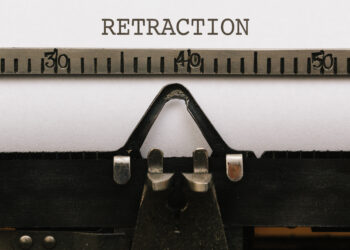
Middle age hit me this week as I listened to a radio report about iRights, a campaign “to make the digital world a more transparent and empowering place for children and young people (under 18) by delivering a universal framework of digital rights, in order that young people are able to access digital technologies creatively, knowledgeably and fearlessly.” Young people, we are told, need help to delete information they put online that may later jeopardize their opportunities in life. And yes, my first reaction was: they should stop putting sensitive information online in the first place. Making it easier to mop up afterwards will only exacerbate the problem. Prevention is better than cure. #grumpyoldwoman
It then occurred to me that similar arguments are made against the morning-after pill, and a quick search for any evidence one way or another on that debate surfaced commentators from whom I quickly wanted to distance myself. This made me think again about iRights. It’s about the freedom to let your hair down and not live in fear of the consequences. It’s focused on young people, but it has resonance for all of us; even those of us who grew up in an essentially or entirely pre-digital world are not exempt from this issue. Thanks to scanners, and friends with different boundaries and perspectives, it’s easy to be embarrassed by old pictures that suddenly show up in your Facebook or Google+ stream.
I’m digitally literate enough to know how to silo my contacts and configure privacy settings to ensure that there is a Chinese wall between my personal and professional lives. But there’s a lot packed into that sentence that has come from experience, from growing up as a digital pioneer and learning from my mistakes as I went along. Young people emerge today into a much more evolved digital environment, and must get up to speed quickly; digital literacy, like any other kind of literacy, will be acquired more quickly by some than others. It’s only fair to allow people to review and redress poor decisions made during the “learning” phase, by fighting for systems that will make it easier to comprehensively remove evidence of immature or poor behavior or decision-making.
The campaign also touches on the challenges of information about you that is not controlled by you. Again, it is experience that has made me a bit more pedantic and controlling about (for example) my interactions with journalists – everyone knows someone who’s had words put into their mouth by a journalist struggling to fill space or meet a deadline, and we all probably see pictures of ourselves online that we wish were not what new industry contacts would find when looking us up in Google Images. Snarking at young people that they should be more careful what they say or give to whom is to gloss over our own history of youthful laissez-faire. Again, it’s only fair to ensure that when they realize the consequences, they have some ability to take back control of their online reputation.
Perhaps that’s why the issue caught my attention: although presented as an issue of child rights and online safety, this is as much as anything else an issue of online reputation. The ability to tell our own story, to shape the words and pictures that influence others’ perceptions of us, is key at both the personal and professional level. The issues involved are as pertinent for we middle-aged eye-rollers as for these pesky, indiscreet kids, and iRights is about providing a clear explanation of those issues (another cause close to my heart) as well as working towards solutions. Hence, I’ve taken a closer look at the iRights initiative and would ask you to do so too. Perhaps the internet can forget, even if elephants can’t.
Discussion
17 Thoughts on "Elephants and the Internet: Online Forgetting"
This was a great post. I think you really nailed the key issue here:”Young people emerge today into a much more evolved digital environment, and must get up to speed quickly; digital literacy, like any other kind of literacy, will be acquired more quickly by some than others. ” And whether or not they do acquire a high level of digital literacy, as well as how fast they do it, depends a lot on their economic status.
I work with both high income students who are fairly teach savvy because their parents and peers are. I also work with low income–really low income students–who barely know how to cut and paste and they are ripe for putting on the Web parts of their lives no one should know about in years to come simply because they don’t have a clue about privacy settings.
Nor do they always understand the social meaning and consequences of their actions. While students might think that photos of them chugging beer mark them as fun-loving people, employers may think otherwise in the years to come.
To me, these students–and in fact all students but less tech savvy ones in particular–need something like iRights to make sure they don’t mess up their lives before those lives even get started.
The difference between kids growing up today and us older folks is that they have the opportunity and responsibility to learn how to use the Internet wisely and safely, whereas those of us who produced writings and pictures back in the day when there were no ready means for duplicating them and disseminating them widely had no such option and are at risk because the technology has been invented that can reproduce and spread them worldwide. A regime like iRights comes too late to help us.
Sandy, I’m intrigued to know what kinds of radical writings you are rueing! my thought is that the principles for which iRights is advocating would in theory help us keep control even over older material as it is digitised. Though a bit of distance between the vision and the reality there, of course.
Since anything can be scanned, as you point out, everything is up for grabs, including love letters you once sent to other people that your wife has never seen, or personal attacks you made on individuals in private correspondence, or diaries, or whatever. Individuals who are the victims of such Internet postings can always sue for copyright infringement, but once posted, such materials are not readily retrievable and can do lasting damage even if the victim can win an infringement suit.
This is all true Sandy, but I see no way to prevent it by somehow controlling Internet content. The Internet was specifically designed to withstand nuclear war, by being a highly distributed system with no fixed transmission path location. My impression is that the side effect is that it is uncontrollable, unless draconian measures are taken. That is why I ask how these proposed controls are to be implemented? If your love letters go viral, that is all she wrote, as it were. You might as well try to control rumor.
I wasn’t proposing anyone controlling Internet content, just pointing out that modern youth are in a far different position, prospectively, to know what is at risk and can try to act responsibly. That choice didn’t even exist for us because there was no Internet, but anything we created back then can now be shared, whether we like it or not.
Whenever I hear people talking about controlling Internet content I get nervous. The question is how this control would be exercised? As a sometime journalist I might not like having my stories removed, just because the person I wrote about did not like what I said (a common occurrence). Also, I wonder how our historians feel about historical records being removed?
Hi David – yes, indeed. I think that might be partly underpinned my own initial reaction. It’s a delicate balance of rights – the rights of the individual to manage their own online reputation; the rights of the journalist’s work to stand; the rights of future readers, and the archivists who serve them. But of all of these, I think the individual is typically the one who has thought least about the perpetual nature of the information they allow to exist online, and therefore deserves greater support in curating that information.
At the core of scholarly publishing is a reverence for the permanent preservation of the historical record. If we are required to expunge the record of anything any individual decides they no longer want made public, what happens to our journals? Most papers are written with the assumption that they will one day be proven incorrect, or at least incomplete. Should those older papers that have been supplanted disappear? What about a researcher whose work has been retracted? Should that researcher have the right to have a paper with faked data expunged from their record?
Perhaps the focus in the scholarly communications environment will be on enabling individuals to set their older work in context – updating it with commentary, links etc that show how their thinking has evolved from that point. This is certainly a scenario in which the fuzzy line between personal and professional will need to be more clearly defined – the extent to which you should be able to delete (it not being critical that the world continue to have evidence of personal misdemeanours) vs the extent to which the record should stand (it being vital that professional wrongdoing not be erased from immediate memory).
Charlie, I think you are right about the fundamental distinction between personal and professional activity. Starting with young people the distinction is pretty easy because everything is personal. Later it gets harder, but that does not make it meaningless. It sounds to me like sort of a concept of retroactive privacy. An interesting concept indeed.
As for the evolving linked scholarly communication environment, that is something that has been discussed in the “beyond the paper” context. We see it done all the time in blogging. The chief obstacle is that it takes a lot of time for little if any professional reward (also like blogging).
I think that’s why, for now, the updated commentary and links etc have to be connected to a formal paper rather than just exist separately. That way their role in increasing e.g. readership, citations can be recognised in the existing rewards structure – and with that recognition, over time, may come (more) change to that structure to recognise these broader discourses.
Sounds like something Kudos might look into.
We may be drifting off topic, but my feeling is that we need to create a communication space that researchers feel they must be part of. Something like a living review article, which presents the evolving reasoning in a given field. Each researcher would basically be explaining where they are in this reasoning. (This is based on the idea of the evolving issue tree of a field, but it does not have to be presented that way.) They would want to participate in order for their work to be represented. Be there or be square (apologies to Mork).


